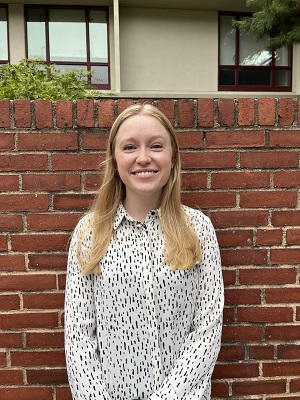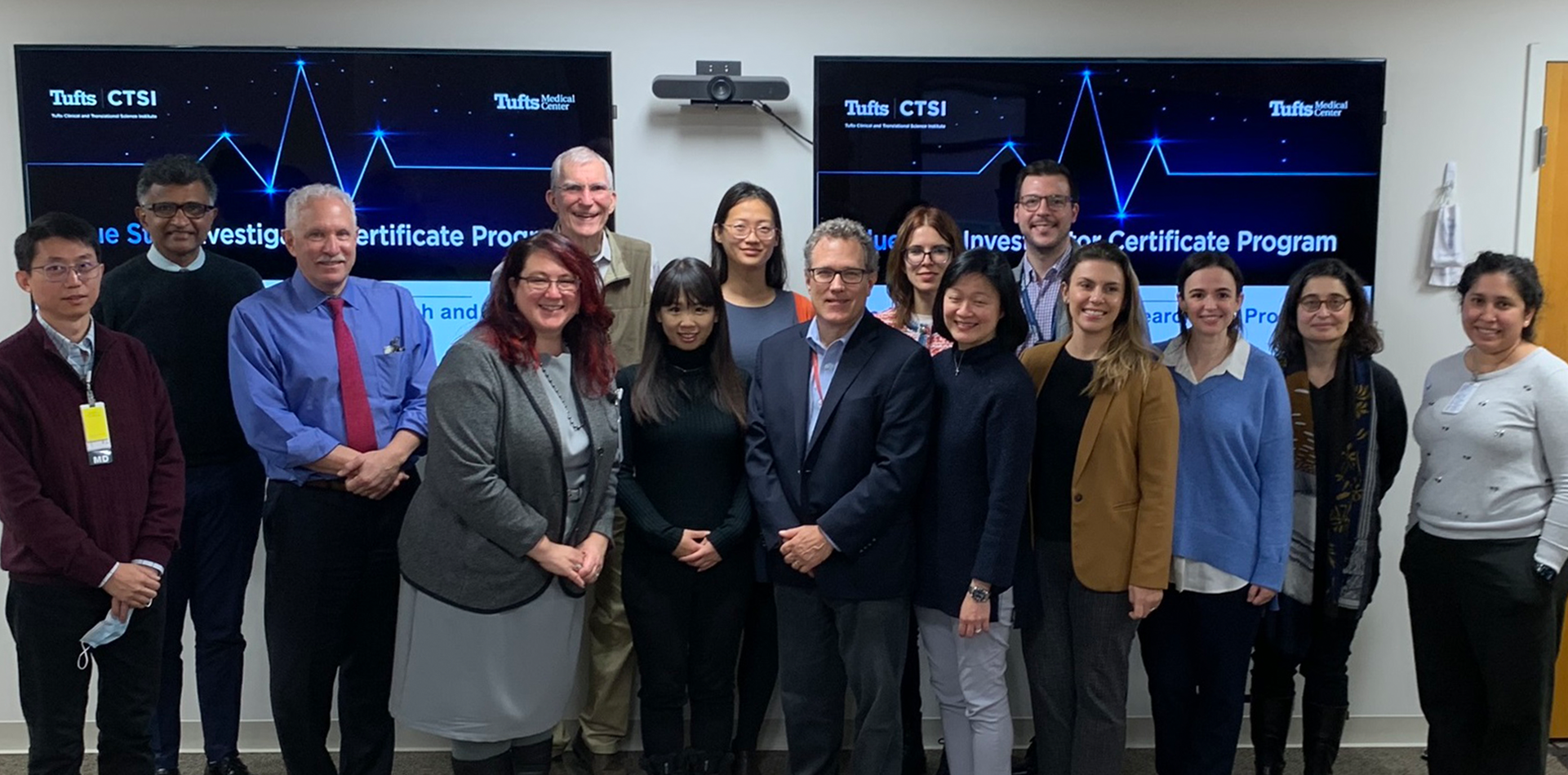Dates and Deadlines
-
- November 4, 2024: Pre-application letters of intent due (required)
- January 17, 2025: K12 full applications due
- TBD: Selected K12 Scholars announced
- May 1, 2025: BIRCWH K12 funding begins
- July 1, 2025: CTSI K12 funding begins
Questions? Please contact: Tufts.MC.Research.Career.Awards@tuftsmedicine.org
Pre-Application
Prospective applicants are required to complete a pre-application by no later than 5:00 PM on November 4, 2024. This will include your current aims plan as well as the mentorship plan. These don’t need to be final, but it is helpful for us to give you feedback. See “Detailed instructions for training plan” for instructions regarding these items and formatting.
- Cover Sheet
- Draft specific aims (one page)
- Current NIH-style biosketch
- List of mentors and their roles
- Mentors’ biosketches, which should include a link to My Biography
- Personal data form (Please note that the personal data form must be submitted as a separate document from items #1-5)
Please submit 1-5 as a single document and 6 as a separate document attachment to Tufts.MC.Research.Career.Awards@tuftsmedicine.org.
Applicants are encouraged to meet with CTSI K12 Program Director Lesley Inker, MD, MS, or Elizabeth Leary, PhD, K12 Program Manager, to discuss their proposal or ask questions. Dr. Leary can address questions related to the MS program in Clinical and Translational science. Please click here to sign up for office hours.
Full Application
Prospective applicants reviewed and accepted in the LOI process must complete a full application by no later than 5:00PM on January 17, 2025 including:
Documents to include in application:
- Cover Sheet
- A table of contents
- Current NIH style biosketch
- Training plans and goals not to exceed more than six pages
- Candidate Information
- Career Goals and Objectives
- Career Development/Training Activitiesduring the award period
- Mentoring (1 page)
- Introduction for revised submissions if previously applied (no more than one page)
- Specific Aims (no more than one page)
- Research Proposal (no more than six pages)
- Budget and budget justification
- If applying to CTSI K12 please add: Translational Science Justification(one page)
- If applying to BIRCWH K12 please add: Sex and Gender Studies Justification(one page)
- Letters of support from mentors
- Mentors’ and collaborators’ biosketches, which should include a link to My Bibliography
- One institutional letter of support from the candidate’s Dean, Department Chair,or Division/Section Chief
Detailed instructions for training plan
Formatting
Please format your grant submission as any NIH submission with the following:
- Single spaced
- Arial font
- Size 11 font
- 0.5 margins
Training plans and goals (no more than 6 pages)
Includes three sections: 1) Candidate Information, 2) Career Goals and Objectives, and 3) Career Development/Training Activities. All together they should take up no more than 6 pages.
Candidate Information
Describe the candidate’s commitment to a translational research career. Describe all the candidate’s professional responsibilities in the grantee institution and elsewhere and describe their relationship to the proposed activities on the career award.
- Describe prior training and how it relates to the objectives and long-term career plans of the candidate.
- Describe the candidate’s research efforts to this point in the candidate’s research career, including any publications, prior research interests and experience.
- Provide evidence of the candidate’s potential to develop into an independent investigator.
- We seek to support a diverse group of investigators, some with unique paths to their research careers. As relevant, describe the “distance travelled” to the candidate’s current research activities, addressing the barriers the candidate has overcome in life (academic or otherwise) to get where they are today.
Career Goals and Objectives
Describe a systematic plan that: (1) shows a logical progression from prior research and training experiences to the research and career development experiences that will occur during the career award period and then to independent investigator status; (2) justifies the need for further career development to become an independent investigator; and (3) utilizes the relevant research and educational resources of the institution.
Career Development/Training Activities during the award period
The candidate and the mentor should collaborate for the preparation of the career development plan. A timeline is often helpful. The sponsor/mentor may form a mentoring team (or an advisory committee) to assist with the development of the program of study or to monitor the candidate’s progress through the career development program. The didactic (if any) and the research aspects of the plan must be designed to develop the necessary knowledge and research skills in scientific areas relevant to the candidate’s career goals. The candidate must demonstrate they have received training or will participate in courses such as: data management, epidemiology, study design (including statistics), hypothesis development, drug development, etc.
The candidate must include a course in the responsible conduct of research that includes training in the legal and ethical issues associated with research on human subjects.
Describe the professional responsibilities/activities including other research projects) beyond the minimum required nine person-months (75% of their full-time faculty appointment or professional effort) to the mentored career development award. Surgeons are eligible for 50% restricted time if sufficiently justified and programmatically approved.
Explain how these responsibilities/activities will help ensure career progression to achieve independence as an investigator conducting patient-oriented research.
Scholars without clinical and translational research training are encouraged to enroll in the MS Program in clinical and translational science. For information on the core competencies in clinical translational science, please visit the CLIC Core Competencies for Clinical and Translational Research page. Applicants should discuss with K12 leaders early in their application process whether their prior training meets the goals of the program.
Scholars with prior clinical and translational research training are encouraged to complete courses in study design and scientific writing that are available in the MS program. Additionally, Scholars may consider specific formal courses and activities to address their training needs. Applicants can review courses in the Clinical and Translational Science Graduate Program at the Graduate School of Biomedical Sciences for available coursework or can seek out other opportunities at other institutions.
Mentoring (no more than one page): The candidate must indicate in their application who will serve as their primary mentor and who will serve as their secondary mentor(s). Mentoring plan should include a table listing mentors, consultants, collaborators, and their roles. Applicants who cannot identify mentors from within their department are encouraged to speak with a member of the K leadership within the program in the preparation of their application. The selection of interdisciplinary mentors is strongly encouraged.
If applying to CTSI K12 please add: Translational Science Justification: (one page) This section will describe how both this research and your planned research career align with a clinical translatio:nal science focus. The NIH definition of translational science is “the process of turning observations in the laboratory, clinic and community into interventions that improve the health of individuals and the public.”
If applying to BIRCWH K12 please add: Sex and Gender Studies Justification: (one page) This section will describe how both this research and your planned research career align with a sex and gender studies focus.
Letters of support from mentors: All applications must contain letters of support from the candidate’s mentors. The mentors must be engaged actively as an independent investigator with expertise in the scholar’s area of interest. The proposed mentors must have prior experience in providing research training and a list of prior mentees should be included if appropriate. The letter from the mentors must state their credentials to qualify as a sponsor. The letter of support will state how the applicant will benefit from inclusion in this program as well as the mentor’s commitment to participate in the program. Primary mentors must also acknowledge their willingness to participate in a mentor training.
Mentors’ and collaborators’ biosketches: All applications must contain biosketches from the primary and secondary mentor(s) and any significant collaborators/consultants. The biosketch should include a link to the mentors’ My Bibliography page.
One institutional letter of support from the candidate’s Dean, Department Chair, or Division/Section Chief: All applications must include a letter of support from the Dean of the candidate’s department as well as their biosketch. This letter should confirm the candidate meets all eligibility requirements, including citizenship status (citizens, non-citizen national, or permanent resident [see Section 11.2.2.4]) at the time of appointment. It should also confirm the department’s commitment to 75% time devoted to research related activities related to the funded K12 award, and commitment to supporting the difference (if any) in salary and fringe between the award and 75% of the candidate’s actual salary/fringe, not using federal dollars. The calendar months for Scholars who are surgeons must be equal or greater than 6, which is equal to 50% annually. The Departmental letter should indicate the commitment to the growth candidate’s long term research career. This could indicate past and current research support provided to the candidate by the department or institution. Funding priority will give to those candidates for whom a commitment of support is indicated by their Department/School for an additional year following completion of this K12 toward independent research support. If the candidate is a postdoctoral fellow and does not have an academic appointment in their home institution/school at the time of application, the institutional letter of support should also indicate that the candidate will be advanced to a faculty position within one year of funding.



